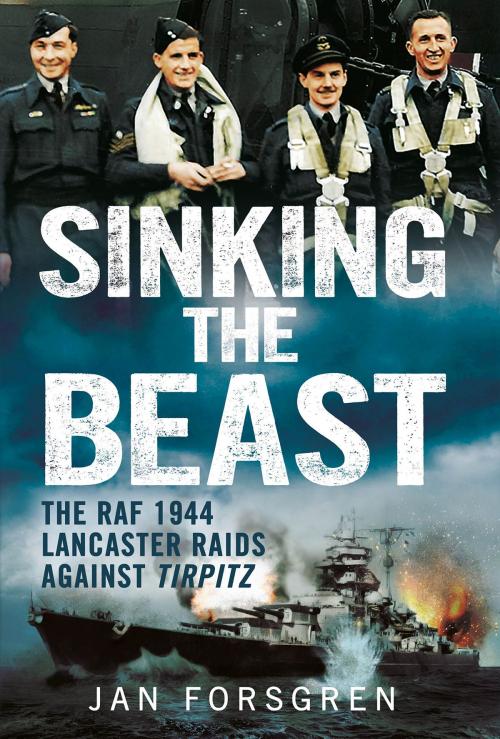Sinking the Beast
The RAF 1944 Lancaster Raids Against Tirpitz
Nonfiction, History, Military, Aviation, World War II| Author: | Jan Forsgren | ISBN: | 1230001519815 |
| Publisher: | Fonthill Media | Publication: | January 24, 2017 |
| Imprint: | Language: | English |
| Author: | Jan Forsgren |
| ISBN: | 1230001519815 |
| Publisher: | Fonthill Media |
| Publication: | January 24, 2017 |
| Imprint: | |
| Language: | English |
During the autumn of 1944, three RAF raids - using Avro Lancaster heavy bombers - finally sank the German battleship Tirpitz. Many previous attempts, including the use of midget submarines and raids by carrier-based aircraft, had damaged Tirpitz at her Norwegian hideout. Throughout the war, Tirpitz had become a much feared asset of the Third Reich war machine, almost gaining mythical status. In mid-1944, No. 5 Group of RAF Bomber Command was assigned the job of finally sinking Tirpitz. The first raid, codenamed Operation Paravane, saw Tirpitz damaged by Russian-based Lancasters where the great ship was heavily damaged. Subsequently, the battleship was transferred further southwest to Tromso for repairs, which meant that it came within the range of UK-based bombers. The last raid proved successful. Each Lancaster carried a 12,000 lbs 'Tallboy' bomb packed with high explosive. The Tallboy, engineered by Barnes Wallis who was responsible for the Dambusters' bouncing bomb, proved highly effective. Despite heavy flak and tracer fire, the Tirpitz was rocked by violent explosions of an apocalyptic magnitude: windows were broken and houses were rocked off their foundations some three miles away. A stray Tallboy hit the island and silenced all AAA batteries. The job was done: near misses and a direct hit pulverised the mighty battleship. The Tirpitz capsized and sank, taking her doomed crew with her beneath the waves.
During the autumn of 1944, three RAF raids - using Avro Lancaster heavy bombers - finally sank the German battleship Tirpitz. Many previous attempts, including the use of midget submarines and raids by carrier-based aircraft, had damaged Tirpitz at her Norwegian hideout. Throughout the war, Tirpitz had become a much feared asset of the Third Reich war machine, almost gaining mythical status. In mid-1944, No. 5 Group of RAF Bomber Command was assigned the job of finally sinking Tirpitz. The first raid, codenamed Operation Paravane, saw Tirpitz damaged by Russian-based Lancasters where the great ship was heavily damaged. Subsequently, the battleship was transferred further southwest to Tromso for repairs, which meant that it came within the range of UK-based bombers. The last raid proved successful. Each Lancaster carried a 12,000 lbs 'Tallboy' bomb packed with high explosive. The Tallboy, engineered by Barnes Wallis who was responsible for the Dambusters' bouncing bomb, proved highly effective. Despite heavy flak and tracer fire, the Tirpitz was rocked by violent explosions of an apocalyptic magnitude: windows were broken and houses were rocked off their foundations some three miles away. A stray Tallboy hit the island and silenced all AAA batteries. The job was done: near misses and a direct hit pulverised the mighty battleship. The Tirpitz capsized and sank, taking her doomed crew with her beneath the waves.















